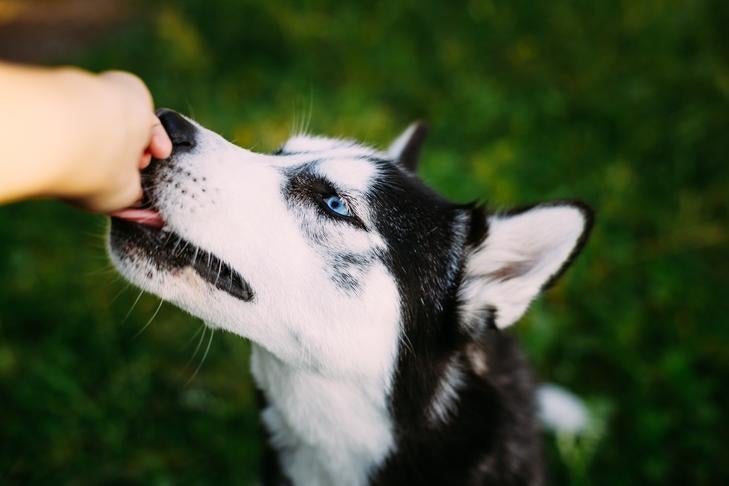
Many of today’s conversations about our pets’ food focus on ingredients. Unfortunately, we don’t hear as much about the primary goal of an animal’s diet — providing nutrients to support growth, metabolism and repair.
There are six nutrient classes — proteins, lipids (fats), carbohydrates, vitamins, minerals and water — and a diet cannot provide an adequate (much less optimal) supply of nutrients without available sources of each of these six classes. Each one is important for optimal health and performance.
When nutrients do make their way into the conversation, it’s often regarding how much protein or fat the diet contains. But what about the other nutrient classes? It’s important to also consider vitamins when formulating a diet.
Vitamin Classifications and Functions
Vitamins are generally divided into two broad classifications: water soluble and fat soluble. As the names imply, one group dissolves in water and the other dissolves in fat. No matter the classification, each vitamin has a specific and important function.
Functions of water- and fat-soluble vitamins
| Classification | Vitamin | Function |
| Water soluble | ||
| Ascorbic acid (vitamin C) | Formation of connective tissue, wound healing, immune system support, antioxidant | |
| Thiamin (vitamin B1) | Energy metabolism, muscle contraction, nerve signaling, appetite improvement | |
| Riboflavin (vitamin B2) | Growth and development, cellular function, energy metabolism | |
| Niacin (vitamin B3) | Energy production, cellular function | |
| Pantothenic acid (vitamin B5) | Food metabolism, hormone formation, energy production | |
| Pyridoxine (vitamin B6) | Protein metabolism, red blood cell formation, neurotransmitter production | |
| Biotin (vitamin B7) | Food metabolism, energy release from carbohydrates | |
| Folate (folic acid or vitamin B9) | Growth and development, red blood cell formation, protein metabolism, lowers risk of neural tube birth defects | |
| Cobalamin (vitamin B12) | Cellular replication, red blood cell formation, maintenance of the nerve system | |
| Fat soluble | ||
| Retinol (vitamin A) | Immune function, reproduction, cellular division, gene activity, membrane function | |
| Vitamin D | Bone and tooth development, cellular growth, immunity | |
| Vitamin E | Antioxidant, immune system support | |
| Vitamin K | Bone health, protein production, blood clotting |
As the table highlights, vitamins are a critical important component of your dog’s diet. However, this does not mean you should provide your dog with a daily vitamin supplement. Excessive amounts of any nutrient may present issues that can be just as harmful as a deficiency. (The age-old saying about “too much of a good thing” applies here.) This is especially true for fat-soluble vitamins (A, D, E, and K), which can be stored in the body and potentially lead to vitamin toxicity.
Royal Canin delivers a targeted and balanced level of nutrients, including vitamins, to dogs’ daily diets to help them thrive.

